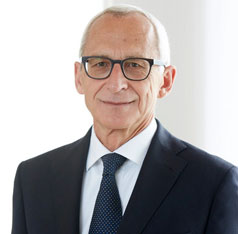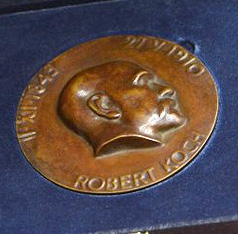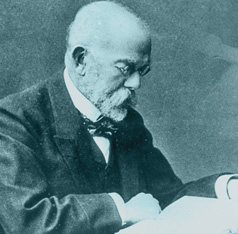Robert Koch
Living pathogens can trigger diseases. What every
child knows today was highly controversial in the mid19th century – until the principle was first fully proved in
1876 by Robert Koch using the anthrax bacterium.
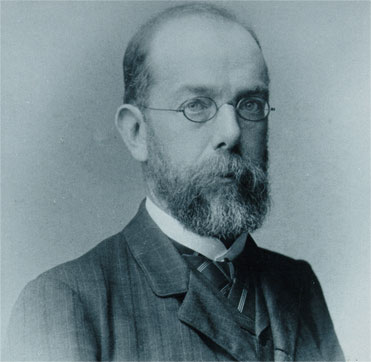
Robert Koch, 1884
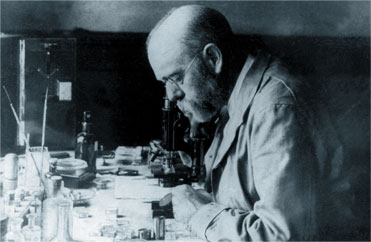
Kimberley, South Africa, 1896: Robert Koch searching for the rinderpest pathogen.
Koch's research career
Koch co-founded modern medical microbiology with this work. For him personally, it marked the beginning of an extraordinary career in research, culminating in the discovery of the tuberculosis pathogen in 1882, for which he was awarded the Nobel Prize in Physiology or Medicine in 1905.
Establishment of the foundation
1907 marked the 25th anniversary of the discovery of
tubercle bacilli, as Robert Koch called them. The idea for
a foundation was born in Berlin in the same year. The editor of the ‘Deutsche Medizinische Wochenschrift’, Julius
Schwalbe, wanted to honour Robert Koch and promote
further research into tuberculosis. He won supporters
and collected donations.
When the ‘Robert Koch Foundation for the Fight
against Tuberculosis’ was set up, Koch himself was a
member of the board. In 1909, as one of the first scholarship recipients, he was awarded 20,000 marks.
After Koch’s death, the Foundation continued its work,
but lost its capital due to inflation and was dissolved in
1929. It was re-established in 1935 on the 25th anniversary of Robert Koch’s death. In the following years, the
Robert Koch Foundation was dominated by the Nazi dictatorship. Politicians exerted a decisive influence on the
Foundation and how its funds were used, and government
officials occupied decisive posts on the executive board.
In 1960, the Robert Koch Foundation resumed its
work, now as a registered association. Its purpose, which
until then had been limited to tuberculosis, was extended
to other infectious diseases.

